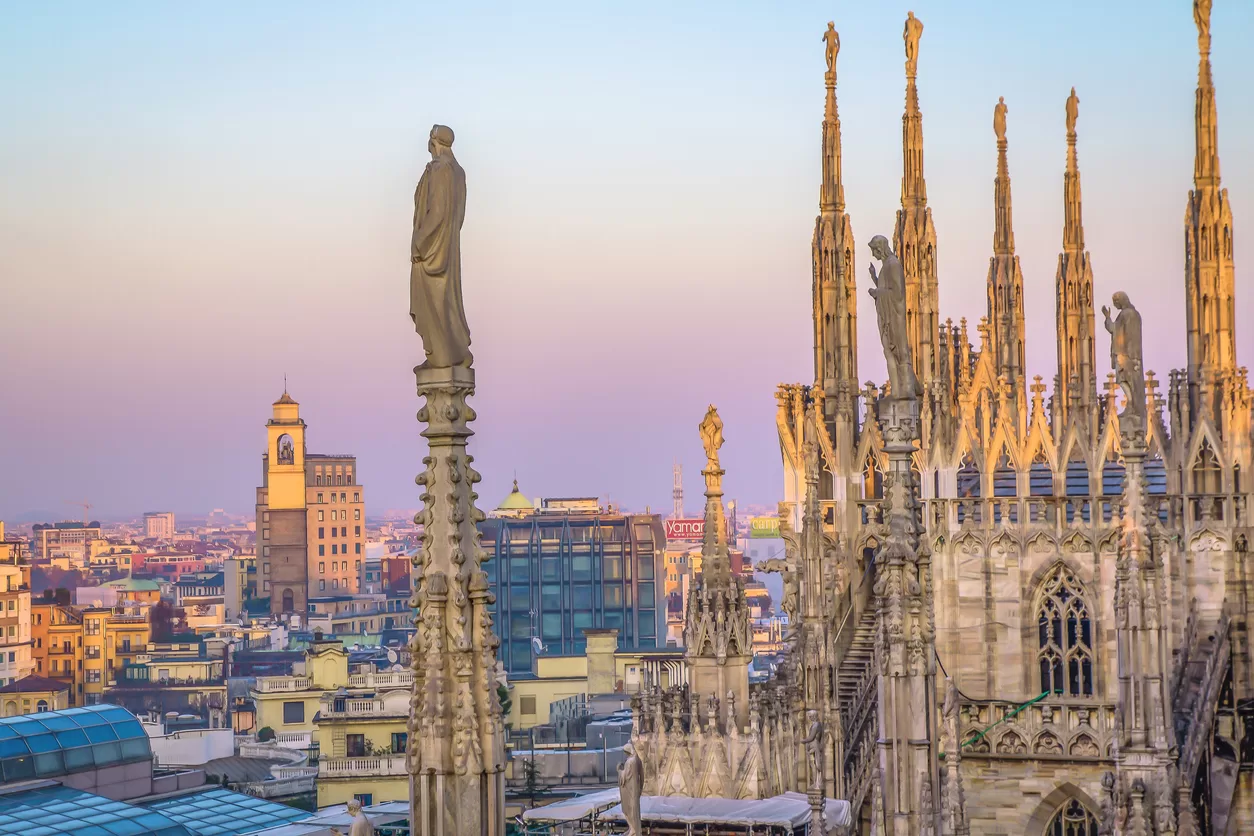
As part of an ongoing interview series, QS is speaking to university professionals across Italian higher education to discuss their insights about the impact of the coronavirus.
As higher education institutions adapt to the new normal we’re all facing, Italian institutions are sharing the lessons and insights they’ve learnt about delivering education under quarantine.
During this interview series, we’ve spoken to Dr. Eugenio Gaudio, a medical researcher, physician, and Rector of the University of Rome Sapienza; Professor Ferruccio Resta, Rector of Politecnico di Milano and President of the Conference of the Italian Rectors (CRUI); and Stefano Ronchi, Rector’s Delegate for International Affairs at Politecnico di Milano.
This week we’ll be speaking to Gianmario Verona, Rector of Bocconi University, to learn how his institution is dealing with the coronavirus crisis.
As the Rector of Bocconi University, what procedures and crisis management strategies have you introduced to deal with this global health emergency?
I want to underline two points, as they are the premise of everything we’re doing at Bocconi to manage an emergency that is destined to last longer than initially estimated.
First, since the days when the western world was amazed at what was happening in Wuhan and in the province of Hubei, we thought immediately about how to safeguard the health of our community and guarantee students the regular continuation of lessons.
To do this, it was of fundamental importance for us to act quickly. At the end of January, we had already set up a task force made up of faculty members and staff to monitor the situation, anticipate problems, and identify solutions.
So from the very first days of February, when the emergency did not yet seem to concern Italy and Europe, we were ready to install devices for hand sanitizing and information panels with health indications throughout the university, as well as increasing the presence of health and nursing services on campus.
At the same time, we rescheduled teaching for students who were due to leave for exchanges at one of our 21 partner universities in Mainland China, Hong Kong, and Taiwan, or who were supposed to start the second semester of the double degree program in Shanghai.
Secondly, on February 24, the first day of suspension of on-campus activities for all universities in Lombardy, our teaching moved from physical to virtual classrooms with the same alacrity.
In less than a week, all 427 courses scheduled for this semester started on Blackboard, our platform for online teaching.
Then, 30 days after this transition, the data told us that six million minutes of lessons were displayed and 7,000 live sessions were organized, with a peak of over 4,000 students connected simultaneously.
Clearly all this has been possible because Bocconi has been engaged in innovative teaching for years, through a dedicated center called BUILT (Bocconi University Innovations in Learning and Teaching) that excels in leveraging digital technology.
The next steps now are the graduation sessions of April 15 and 17, which will involve 1,000 students and will take place virtually. Written and oral exams will also be held remotely.
In March, we worked hard to solve problems in a timely manner, according to priorities dictated by the academic calendar but also by the needs, practical and emotional, of our students.
All this takes into account that the worsening of the health emergency has also forced faculty and staff to continue their jobs via remote working.
What insights would you like to share with universities across the globe? What are the key lessons you’ve learned from these first few weeks of the coronavirus outbreak?
Italian universities, and Italy in general, having been the first in the western world to face this global emergency are today a case history in all respects.
Right from the start, we worked in coordination with all the Lombardy universities to find the best solutions, because it was clear that the problem was unique and that it had to be tackled together for the good of all, especially students.
This pandemic is giving us more than one lesson. The first is that global problems must be addressed in a global and shared way and not according to local logic. That applies to universities and even more to countries.
The second lesson is that we must all work to resolve the inequalities that globalization has fueled and in doing so we’ll have to build a new globalization based on solidarity.
With this, the school system, universities, and the world of research will have to play a decisive role in terms of access to education, the development of skills and knowledge, and their dissemination. To do this, they will have to become a priority on political agendas.
The third lesson is that digital and artificial intelligence are friends of mankind and are once again proving it. We will therefore have to work on their diffusion, with a focus on ethics and privacy, in the world of work and education.
What is happening in our classrooms these days shows that digital tools are essential to improve the teaching and learning experience, alongside classroom activities. The information and basic knowledge acquired with the help of digital technology are transformed into complex knowledge thanks to interaction with the class and the professors, who increasingly serve as multidisciplinary coaches.
With Italy under a national quarantine, how has your university consistently communicated with students throughout this period and what are your ongoing plans for communication?
Communication in times of emergency not only plays a fundamental role but must be managed in an even more transparent and personalized way because it has the dual role of informing and reassuring.
This has become clear at a macro level, unfortunately through the gaffes and misstatements of politicians from many countries and representatives of international institutions.
We therefore moved on two levels at Bocconi. In terms of information, we are constantly communicating with all the targets of our community on the decisions and actions we’re gradually putting in place.
We do this by using different platforms and tools in order to reach all members of the community: email, website, online agenda, social media, and personal communications via telephone.
On the emotional level of reassurance, we’re working to strengthen the sense of community and bonding within the university.
This is already a very strong connection, students and alumni call the university “Mamma Bocconi,” because sharing, solidarity, and a sense of belonging help to overcome moments of crisis like the one we’re experiencing.
In the practice of communication, all this translates into telling a story that puts an emphasis on community members, students, and alumni, who are involved by profession or as volunteers in crisis management. You cannot imagine how many there are, a great source of pride for all of us.
And of course, our professors who, thanks to their expertise, explain the different impacts of the pandemic on the economic, industrial, financial, health, and obviously social levels through a series of videos collected on YouTube.
What mental health and emotional support are you offering to students?
Bocconi operates a counseling and self-empowerment service whose objective is to promote the psychological well-being of students, help them to enhance self-awareness, and to value resources and networks of relationships.
In this period, however, I believe that the real support, what the students ask for and appreciate, is what professors and staff are giving them daily to solve any type of problem.
These days, I keep telling them to respond promptly to requests via email, to be available to call via Teams or on other platforms, and to make students feel part of a community, as these are the things that are making the difference.
How do you think universities, and the higher education sector, can best respond to the coronavirus outbreak?
The first answer is the one we’re giving, once again putting students at the center to ensure that their course of study is not interrupted or delayed, and trying to preserve the relational element that isolation and closed campuses put under strain.
The second answer lies in the second mission of our university, that is, research. All researchers, in Bocconi as in all universities, are mobilizing to address and study this pandemic and its effects according to their own field of specialization and in collaboration with colleagues from other disciplines.
At Bocconi, for example, groups are active on contact tracing; epidemiological statistics; constitutional law and the protection of privacy; and the impact of social isolation and production stoppage on air pollution, production chains, and individual professions.
These are studies that will help us to overcome our difficulties and leave us better prepared to face upcoming emergencies. Just like the basic research of recent years is helping us face this crisis.



